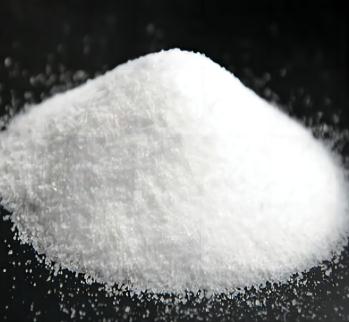What is potassium phosphate?
What is potassium phosphate?
Phosphorus is a naturally occurring substance that is important in every cell of the body. Phosphorous is contained in all body cells and is used for growth and repair of cells and tissues.
Potassium phosphate is used to treat or prevent hypophosphatemia (low blood levels of phosphorus). Potassium phosphate is sometimes added to intravenous (IV) fluids given to people who cannot eat or drink anything.
Potassium phosphate and sodium phosphate may also be used for purposes not listed in this medication guide.

Important Information
You should not use potassium phosphate if you have low levels of calcium, or high levels of potassium or phosphorus in your body.
Before taking this medicine
You should not use potassium phosphate if you have:
high levels of potassium in your blood (hyperkalemia);
low levels of calcium in your blood (hypocalcemia); or
high levels of phosphorus in your blood (hyperphosphatemia).
To make sure potassium phosphate is safe for you, tell your doctor if you have:
heart disease;
kidney disease; or
Addison's disease (an adrenal gland disorder).
It is not known whether potassium phosphate will harm an unborn baby. Tell your doctor if you are pregnant or plan to become pregnant.
It is not known whether potassium phosphate passes into breast milk or if it could harm a nursing baby. Tell your doctor if you are breast-feeding a baby.
Potassium phosphate and sodium phosphate should not be given to a child younger than 4 years old without a doctor's advice.
How is potassium phosphate given?
Potassium phosphate is injected into a vein through an IV. A healthcare provider will give you this injection.
Potassium phosphate must be mixed with a liquid (diluent) before using it. If you are using the injections at home, be sure you understand how to properly mix and store the medicine.
Potassium phosphate must be given slowly.
While using this medicine, you may need frequent blood or urine tests.
Store at room temperature away from moisture, heat, and light.
What happens if I miss a dose?
Use the missed dose as soon as you remember. Skip the missed dose if it is almost time for your next scheduled dose. Do not use extra medicine to make up the missed dose.
What happens if I overdose?
Seek emergency medical attention or call the Poison Help line at 1-800-222-1222.
What should I avoid while taking potassium phosphate?
Ask your doctor before using an antacid, and use only the type your doctor recommends. Some antacids can make it harder for your body to absorb potassium phosphate and sodium phosphate.
Avoid taking a vitamin or mineral supplement that contains calcium or vitamin D, unless your doctor tells you to.
Do not use potassium supplements or salt substitutes while you are taking potassium phosphate and sodium phosphate, unless your doctor has told you to.
Potassium phosphate side effects
Get emergency medical help if you have signs of an allergic reaction: hives; difficult breathing; swelling of your face, lips, tongue, or throat.
Tell your caregivers right away if you have any signs of electrolyte imbalance, such as:
numbness or tingly feeling around your mouth;
fast or slow heart rate;
a light-headed feeling, like you might pass out;
muscle tightness or contraction, overactive reflexes;
weakness or loss of movement in any part of your body;
slow or unusual heart rate;
nausea, confusion, weakness; or
numbness or tingling in your arms or legs
You may like
Related articles And Qustion
See also
Lastest Price from Potassium Phosphate Monobasic manufacturers

US $1200.00-1100.00/ton2025-09-24
- CAS:
- 7778-77-0
- Min. Order:
- 1ton
- Purity:
- 99%
- Supply Ability:
- 1000T/M

US $1300.00-1200.00/ton2025-08-01
- CAS:
- 7778-77-0
- Min. Order:
- 1ton
- Purity:
- 99%
- Supply Ability:
- 1000T/M




